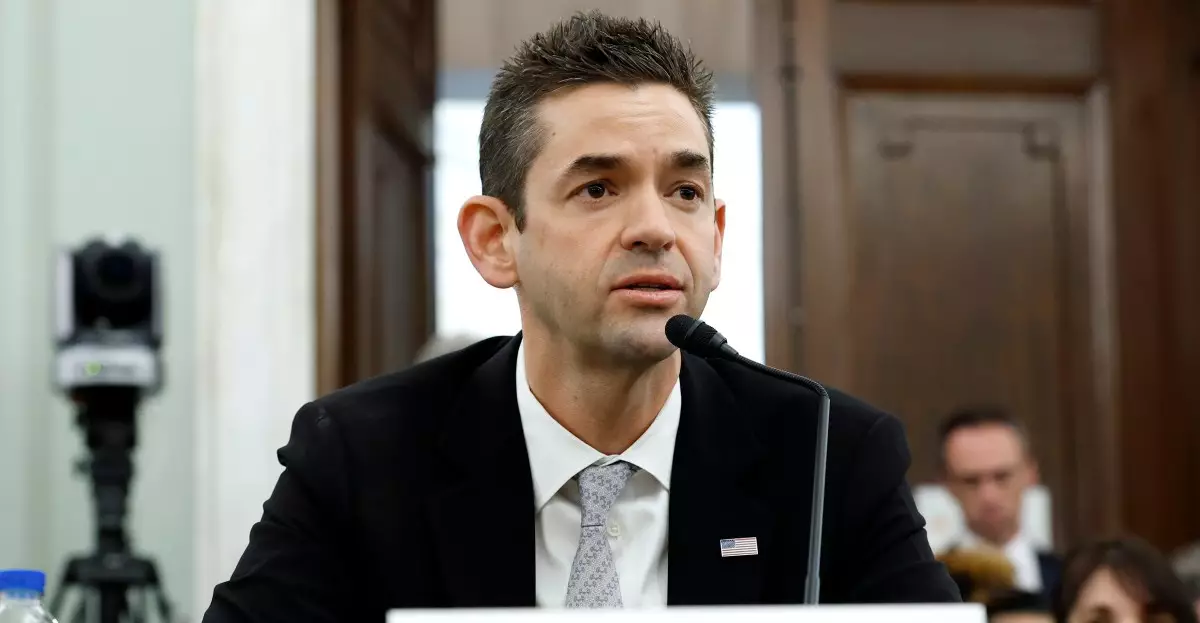The sudden withdrawal of Jared Isaacman’s nomination for NASA Administrator reveals the profound interplay of politics and space exploration in contemporary America. Isaacman, a billionaire entrepreneur known for his ventures in the aerospace industry, was poised to step into a significant role at NASA, particularly given his ties with Elon Musk’s SpaceX. However, his previous financial contributions to Democratic causes reportedly played a pivotal role in the Trump Administration’s choice to retract his nomination. This incident brings to light the critical, often unseen, factors that govern leadership appointments in agencies like NASA, which should ideally transcend partisan politics for the broader goal of scientific advancement.
The Dangers of Partisan Politics in Science
The implications of Isaacman’s nomination withdrawal extend beyond mere partisan maneuvering. His intimate association with space exploration is no trivial matter; having flown commercially to space multiple times, he embodies a cutting-edge intersection of technology and human experience—an area that should be devoid of political bias. However, his financial support for Democratic figures, including Senator Mark Kelly of Arizona, appears to have overshadowed his qualifications and accomplishments. This situation raises a critical question: if NASA leadership becomes a casualty of political contributions rather than evaluated on expertise and vision, what does that signify for the future of space exploration?
The Financial Cliff of NASA’s Future
Further complicating this landscape is the current administration’s budget proposal for NASA, which has set alarm bells ringing among scientists and explorers alike. A proposed funding cut of nearly 25% from $24.8 billion to $18.8 billion signals a troubling lack of commitment to scientific inquiry and exploration. The drastic reduction in funds allocated to science programs—slashing 47%—coupled with Isaacman’s untimely ouster, suggests a climate where partisan politics is eclipsing the essential need for progressive space exploration efforts. Critically, organizations like The Planetary Society have condemned the budget as an “extinction-level event” for NASA’s scientific capabilities.
The Fragile Future of NASA’s Leadership
As the space industry becomes increasingly dependent on private enterprises like SpaceX, fitting individuals for leadership roles must focus on technical competency rather than political loyalty. Within this framework, the sudden halt of Isaacman’s nomination poses a significant barrier to innovative leadership at NASA. A former senior NASA leader’s characterization of the funding request as “just a going-out-of-business mode” encapsulates the perilous state in which the agency finds itself—stymied during a pivotal moment in the evolution of human spaceflight.
A Call for Nonpartisan Space Exploration
As the political landscape becomes engulfed in partisanship, it is vital to call for a recommitment to nonpartisan approaches in scientific governance. The trajectory of space exploration depends on leaders who can inspire, innovate, and navigate the complexities of advancing technology and international cooperation. If the future of NASA—and, by extension, humanity’s journey into the cosmos—is to flourish, we must advocate for a space administration led by visionaries, untainted by the corrosive effects of political alliances.

